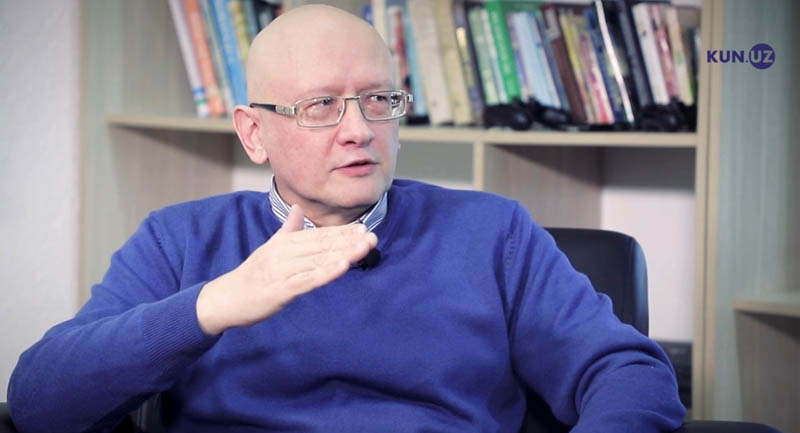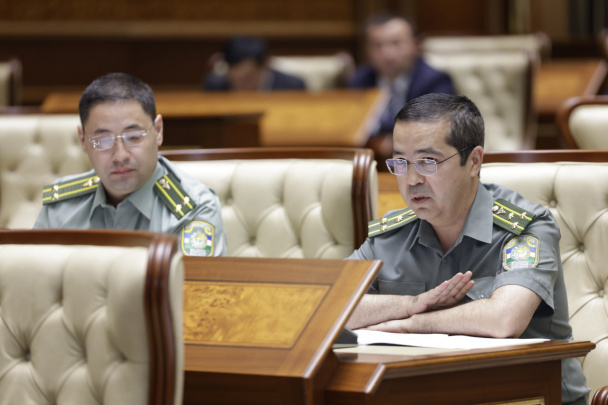‘Wrong prescription’: Economist slams IMF call for tax increases in Uzbekistan
The International Monetary Fund (IMF) recently published its analysis and recommendations on Uzbekistan’s fiscal and monetary policy. Economist Yuliy Yusupov offered a sharply critical response, describing the IMF’s advice as unfit for Uzbekistan’s real economic conditions.

Photo: Kun.uz
According to the IMF, Uzbekistan should develop a strategy to increase budget revenues, claiming that tax revenues as a share of GDP have declined by 2 percentage points since 2020. To address this, the Fund recommends:
- Raising excise taxes on alcohol, fossil fuels, vehicles, and sugar;
- Phasing out investment-related tax incentives and refraining from introducing new ones;
- Eliminating inefficient customs exemptions and halting the issuance of new ones;
- Replacing the current flat income tax rate with a progressive tax system.
The IMF argues these measures would not only offset the fall in revenues but also help make the tax system more equitable.
Yusupov agrees with repealing selective and sectoral privileges, which distort market mechanisms, hinder competition, and foster corruption. However, he challenges the core claim that Uzbekistan’s budget revenues are falling. Referring to data from the Asian Development Bank, he points out that the country’s consolidated budget revenues increased from 26.9% of GDP in 2020 to 30.5% in 2024.
“The real issue,” Yusupov writes, “is that public spending is growing even faster — from 29.1% to 35.5% of GDP.”
He raises a critical question: “Does this mean we need to increase the tax burden? Or should we instead be cutting public expenditures?”
Yusupov argues that the IMF’s recommendation to increase taxes may be textbook macroeconomics — suitable for mature, developed market economies — but it is dangerously inappropriate for a poor country like Uzbekistan.
“Uzbekistan is poor — tax burdens should be lower, not higher”
Yusupov points out that Uzbekistan’s GDP per capita hovers around just $3,000. Global experience shows that the poorer a country is, the lower its tax and budget burden should be if it hopes to catch up with wealthier nations. High government spending raises business costs and undermines competitiveness.
In Uzbekistan, government spending already exceeds 40% of GDP — a level comparable to Western Europe. Including quasi-fiscal expenditures, this ratio is even higher. In contrast, advanced Asian economies maintain this figure at about half that level. The same applies to many fast-growing, low-income countries.
He further notes that Uzbekistan still lacks a fully functioning market economy. Economic decisions are made not by market forces but by bureaucrats, who continue to guide the economy through subsidies, tax breaks, tariffs, and preferential credit schemes.
In such a system, officials are always demanding more public funds. Without strong civic oversight and institutional constraints, this leads to uncontrolled spending — and eventually, a mounting tax and debt burden on the public.
What Uzbekistan really needs, according to Yusupov
Yusupov outlines four key reforms to stimulate sustainable growth:
- Cut government expenditures — especially economic-related spending — by 1.5 to 2 times;
- Dramatically reduce state ownership in the economy;
- Lower tax and debt burdens, reduce business costs, and enhance product competitiveness;
- Eliminate customs and non-tariff barriers, along with sector-specific tax breaks, to boost competition and fight corruption.
But above all, he argues, the government must completely rethink its role in the economy. Public officials should not interfere in business or distort the market and competitive environment — something they are unfortunately doing today.
“And what does the IMF recommend in this context?” Yusupov asks. “Of course — to increase the tax burden even more!”
He concludes by calling the IMF’s recommendations a textbook example of mechanically applying macroeconomic formulas without considering the country’s actual circumstances or institutional realities — resulting in what he describes as “astonishingly tone-deaf proposals.”
Related News

15:28
IMF recommends raising pension age — Uzbekistan’s Pension Fund says no decision made yet

15:26
Uzbekistan offers tax breaks for foreign investors in certain districts of Tashkent region

14:55
Senate approves elimination of double customs duties on imports to Uzbekistan

14:47



